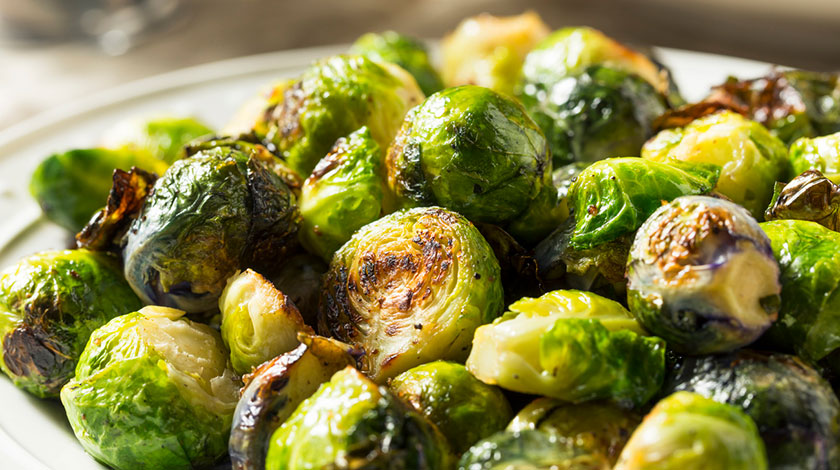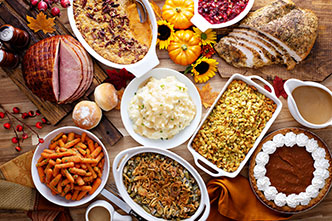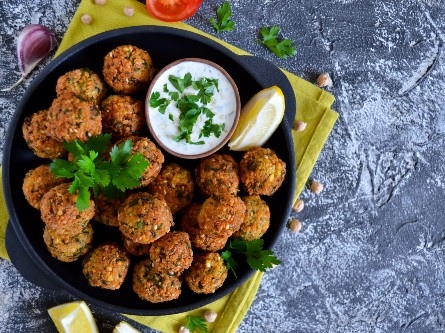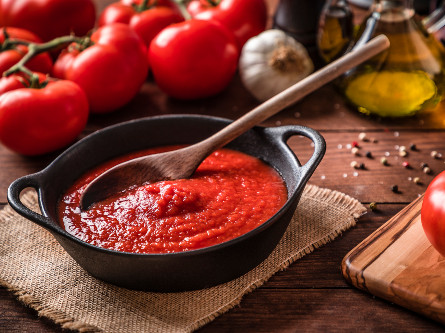Right before many of us start up those New Year's resolutions, the holidays ensure we get plenty of unhealthy food and lots of calories.
However, this time of year can be particularly difficult for people trying to limit saturated fats and sodium as part of a heart-healthy diet.
UC Davis Health dietitian Marie Barone offers tips for patients trying to get through the holidays without compromising their heart-healthy goals.
1. Be aware of portions
The amount of food you eat matters. Take time to savor every bite, which will lead to better satisfaction with less food.
2. Stay active
Time is often limited during the holidays, but make sure you carve out some time to exercise. Walking with family and friends after a holiday meal is a great option.
3. Put the leftovers away
As soon as everyone is done eating, put the food away. This prevents snacking after meals because of boredom or anxiety.
4. Pay attention to beverages
Many holiday beverages ― such as eggnog, punch, wine, mixed drinks and ciders ― are high in calories. Have a holiday-themed drink to toast with or have a small glass of wine with dinner. Then switch to water or diet drinks.
5. Eat breakfast and snack throughout the day
Skipping meals often leads to overeating. Plan to eat breakfast in the morning and have a light snack before holiday events.
6. Prioritize sleep
We know the holiday season is a busy time of year, but try to get as much solid sleep as you can. Everything is more manageable when you're rested. Plan to wind down for the night about 30 minutes before you go to bed. You'll fall asleep sooner and sleep more soundly. Quality of sleep is linked with how much and how often we eat.

Traditional holiday foods that are also healthy
Many common holiday foods have heart-health benefits, Barone said. Explore toppings and add-ins like low-sodium broths, olive oil, low-fat or nonfat Greek yogurt, unsalted nuts, fruits, veggies and spices. Thicken sauces with homemade vegetable puree instead of white flour and butter. Check out these other holiday foods that are also good for you:

More from this blog: Try these 8 easy tips for healthy holiday eating
- Cranberries: These little berries are packed with vitamin C and antioxidants, which are organic substances that can help prevent heart disease and stroke.
- (Healthy) Stuffing: Although this holiday staple is usually high in fat and sodium, there are healthy ways to make it. Use a multigrain bread to add fiber, which helps reduce cholesterol. Replace butter with vegetable broth to reduce saturated fat. Increase the vitamin and mineral content by adding onions, peppers, carrots or even chopped fresh fruit. For flavoring, use antioxidant-rich herbs like sage and rosemary instead of salt.
- Sweet potatoes: These are rich in antioxidant beta-carotene and provide a lot of other vitamins, including vitamins A, B, C and E, along with calcium and potassium. Check out this recipe for chipotle mashed sweet potatoes.
- Vegetables: It's no secret that veggies add fiber, minerals and vitamins. Carrots are especially rich in beta-carotene. Dark, leafy greens like spinach and brussels sprouts are rich in vitamin C, beta-carotene and other antioxidants. Broccoli also has vitamins A and B66, well as riboflavin, folic acid, calcium and iron. Beware of high-fat dressings and sauces that are often added to holiday veggie recipes.
- White potatoes: Packed full of vitamin C, fiber and potassium, which is linked to lowering blood pressure and stroke risk, white potatoes are a healthy option. Instead of adding butter to mashed potatoes, use Greek yogurt or olive oil instead.
Additional resources:
UC Davis Sports Medicine team put together a video of quick and easy exercises to do in the office or at home. Check out Busy But Fit.
UC Davis Health Management and Education empowers people to better manage their health and chronic conditions. Take a look at Health Management and Education's upcoming class schedule.
People choose UC Davis Health when they want the best possible team helping them diagnose, manage and overcome heart or vascular disease.




